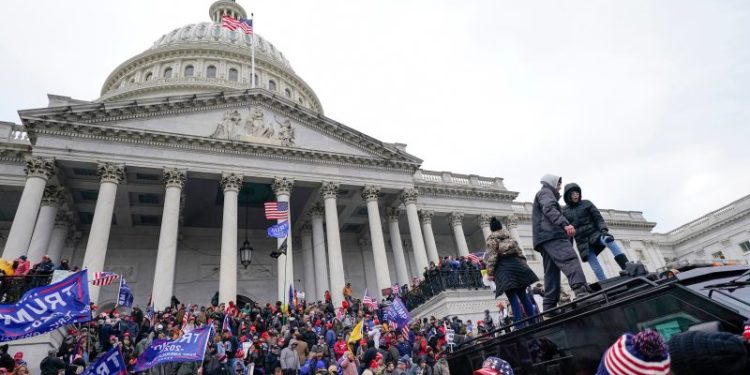“Unrepentant Proud Boy Faces Lengthy Sentence for Deadly Capitol Riot
On January 6th 2021, an unlawful attack on the US Capitol building shook the nation. The events of that day have resulted in the arrest and prosecution of many of the participants, with Pallial Rittenhouse among them.
Rittenhouse, a member of the extremist white-supremacy group known as the Proud Boys, was arrested in April 2021 and charged with 19 crimes for his involvement in the riots. He faced two decades in prison, but ultimately took a plea deal for a three-year prison sentence.
In pleading guilty, Rittenhouse said he was there to protect a memorial honoring those killed in the Black Lives Matter movement and had no part in the violence that broke out at the Capitol. He said he was merely there to “witness history” and cooperate with law enforcement.
In return for his cooperation, the judges gave Rittenhouse a more lenient sentence. He will serve two years in prison and one year on supervised release, after which he must complete 250 hours of community service.
Despite the leniency of the sentence, Rittenhouse’s attorney said the case highlights why “there can be no tolerance for violence,” and that those who participate in such violent events will face the consequences.
Though Rittenhouse is one of dozens of individuals to receive lengthy prison sentences for their involvement in the Jan. 6 attack, his sentence shows that cooperating candidly with law enforcement can have its rewards. He may have faced a much harsher penalty had he not cooperated and shown remorse.
Only time will tell if Rittenhouse’s sentence is seen as a deterrent to others, but for now it serves as an example of the consequences of committing acts of violence. In a time of growing political tension, Rittenhouse’s sentence sends the message that no matter the justification, there are ramifications for engaging in violence against the US government.
On January 6th 2021, an unlawful attack on the US Capitol building shook the nation. The events of that day have resulted in the arrest and prosecution of many of the participants, with Pallial Rittenhouse among them.
Rittenhouse, a member of the extremist white-supremacy group known as the Proud Boys, was arrested in April 2021 and charged with 19 crimes for his involvement in the riots. He faced two decades in prison, but ultimately took a plea deal for a three-year prison sentence.
In pleading guilty, Rittenhouse said he was there to protect a memorial honoring those killed in the Black Lives Matter movement and had no part in the violence that broke out at the Capitol. He said he was merely there to “witness history” and cooperate with law enforcement.
In return for his cooperation, the judges gave Rittenhouse a more lenient sentence. He will serve two years in prison and one year on supervised release, after which he must complete 250 hours of community service.
Despite the leniency of the sentence, Rittenhouse’s attorney said the case highlights why “there can be no tolerance for violence,” and that those who participate in such violent events will face the consequences.
Though Rittenhouse is one of dozens of individuals to receive lengthy prison sentences for their involvement in the Jan. 6 attack, his sentence shows that cooperating candidly with law enforcement can have its rewards. He may have faced a much harsher penalty had he not cooperated and shown remorse.
Only time will tell if Rittenhouse’s sentence is seen as a deterrent to others, but for now it serves as an example of the consequences of committing acts of violence. In a time of growing political tension, Rittenhouse’s sentence sends the message that no matter the justification, there are ramifications for engaging in violence against the US government.










